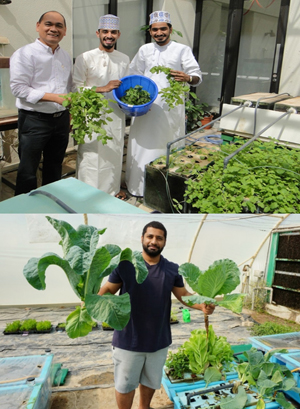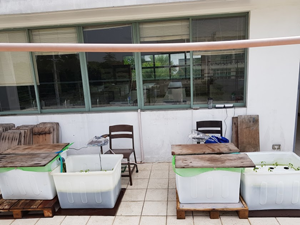 “If we don’t change the way we catch fish and the way we treat our environment, there might come a time when there will be more plastics than fish in the sea.”
“If we don’t change the way we catch fish and the way we treat our environment, there might come a time when there will be more plastics than fish in the sea.”
This was stressed by Dr. Wenresti G. Gallardo, a Balik Scientist and expert in aquaculture and marine science as he pushed for aquaponics technology towards sustainable environment.
Dr. Gallardo is part of the Balik Scientist Program (BSP) being implemented by the Philippine Council for Agriculture, Aquatic and Natural Resources Research and Development of the Department of Science and Technology (DOST-PCAARRD).
Although aquaculture or growing fish in cages, pens, ponds, and tanks is compensating for the almost stagnant growth of capture fisheries, environmental problems such as pollution associated with aquaculture due to overstocking and overfeeding in culture facilities still persist.
To address this challenge, Dr. Gallardo, together with his host institution, the University of the Philippines-Natural Science Research and Institute (UP-NSRI) and in coordination with UP-Institute of Biology (UP-IB), both in Diliman, set up a small-scale aquaponics system to demonstrate how floating and media bed aquaponics systems work. This is showcased at the top floor of the UP-IB.
Part of the promotion is the conduct of lectures about aquaponics during a series of talks at UP Diliman and at the BSP Pre-Convention Forum conducted at the Philippine International Convention Center (PICC), Pasay City, which was attended by faculty members and students.
UP-NSRI and UP-IB are also looking at submitting a multidisciplinary research proposal on aquaponics with proponents from various fields such as analytical chemistry, microbiology, plant and animal physiology, and fisheries to DOST-PCAARRD and other funding agencies.
During his first engagement with UP-NSRI, Dr. Gallardo conducted water analysis on samples from different aquaponics/hydroponics systems to check for accumulation of heavy metals in the water within the system to set a benchmark.
Dr. Gallardo is an Associate Professor at the Sultan Qaboos University in Oman, where he has been successfully growing several types of plants in combination with either tilapia or koi carp through aquaponics for four years. He said that the system does not make use of fertilizers or pesticides and does not generate waste water. It can also be setup even in areas not suitable for traditional farming.
 Through aquaponics, Dr. Gallardo intends to help farmers, urban dwellers, agriculture enthusiasts, and environmentally-conscious consumers to have additional sources of income and to produce eco-friendly vegetables and fish at the same time.
Through aquaponics, Dr. Gallardo intends to help farmers, urban dwellers, agriculture enthusiasts, and environmentally-conscious consumers to have additional sources of income and to produce eco-friendly vegetables and fish at the same time.
Established in 1975, BSP seeks to encourage highly-trained overseas Filipino scientists and technologists, experts, and professionals to return to the Philippines and share their expertise for the acceleration of the scientific, agro-industrial, and economic development of the country.
BSP is also being implemented by DOST-Philippine Council for Health Research and Development (DOST-PCHRD) for the health industry and the DOST-Philippine Council for Industry, Energy, and Emerging Technology Research and Development (DOST-PCIEERD) for those BSP engagements in the Industry, Energy, Emerging Technology, and Special Concerns.
